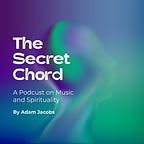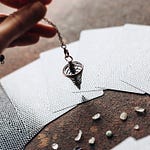A teacher of mine once told me that there’s a surefire way to know that something is really important. A) Everyone says how important it is, and B) no one does it.
In this case, I’m thinking about the necessity of experiencing and accepting pain—not only as a simple fact of life to be endured but as an essential vehicle to develop inner depth, wisdom, and even joy.
Nothing truly succeeds without pain.
—Sophocles
How we avoid pain
As I write this, my daughter has some kind of virus that is causing her a lot of throat discomfort, unfortunately. My little stroll through CVS enabled me to discover a veritable cornucopia of pain relief for the throat, and head, and nose, and back, and feet and stomach and teeth, and basically everything. To be clear, this isn’t a pitch to just suck up real pain for no reason but rather to note that we now have a cultural expectation that most run-of-the-mill (physical) aches and pains can be soothed and while that’s good, we may also have lost a little bit of our capacity for endurance in the process.
Extending this phenomenon to mental health, it’s no secret that most of us have been negatively impacted by a series of poorly defined cultural fluctuations in the last 15 years or so. Psychologist Jean Twenge has been carefully following this process and warning of a serious mental health crisis since 2012. "In all my analyses of generational data — some reaching back to the 1930s — I had never seen anything like it," Twenge wrote in the Atlantic in 2017. Though it would be naive to pin the source of this crisis on any one factor, it seems clear to me that a compromised ability to accept and tolerate pain is part of the puzzle.
Another way in which we avoid unpleasant sensations and emotions is in the arena of relationships. Though there is plenty of fighting going on, there is also a great deal of avoidance of conflicts that need to be had for the relationship to have any chance of thriving. I noticed this comment in Dr. Nicole LePera’s Twitter feed just today:
Again, the path of least resistance is generally so much nicer than an intense and awkward brouhaha. The downside, like in all the scenarios in which we run from pain, is a neutered capacity to learn and grow, thus robbing us of some fairly precious skills and wisdom that will not be fully realized.
According to the pain is the reward.
—Pirke Avot
In my estimation, the Lebanese poet Kahlil Gibran was one of the world’s most gifted communicators of the human condition. In his most famous work, The Prophet, he beautifully gives voice to this conundrum. In a section dealing with joy and sorrow, he observes how the two are intrinsically entwined:
The deeper that sorrow carves into your being, the more joy you can contain.
Is not the cup that holds your wine the very cup that was burned in the potter’s oven?
And is not the lute that soothes your spirit, the very wood that was hollowed with knives?
When you are joyous, look deep into your heart and you shall find it is only that which has given you sorrow that is giving you joy.
When you are sorrowful look again in your heart, and you shall see that in truth you are weeping for that which has been your delight.
Pain is for the birds
What would you be willing to endure to actualize your greatest potential? Would you suffer great physical pain? Public humiliation? Financial ruin? Collen McCullough wrote a very popular book in the 70s called “The Thornbirds” (also made into a miniseries) that profiles the trials and tribulations of the quirky but fascinating Cleary Family over a period of five decades. None of them have an easy go of it. This is how she opens the book:
There is a legend about a bird which sings just once in its life, more sweetly than any other creature on the face of the earth. From the moment it leaves the nest it searches for a thorn tree, and does not rest until it has found one. Then, singing among the savage branches, it impales itself upon the longest, sharpest spine. And, dying, it rises above its own agony to outcarol the lark and the nightingale. One superlative song, existence the price. But the whole world stills to listen, and God in His heaven smiles. For the best is only bought at the cost of great pain…Or so says the legend.
Would you trade it all for one moment of greatness, one “superlative song” that briefly captures the world’s attention? A final and ultimate expression of your core being? Would it be worth it?
The preceding is all a prelude to what I really wanted to talk about, a magnificent song by the Irish singer/songwriter Hozier called Shrike. Sticking with our theme, the Shrike is an unusual species of bird with the resourceful if nasty habit of impaling its prey on long sharp objects (their Latin name is derived from the word for butcher).
With hints of Irish folk drumming and guitar, plus a rich and doleful string arrangement, this is a truly striking tune. Its slow tempo, elegant use of pauses, and evocative piano chords way down at the lowest register create a sad but deeply affecting atmosphere for the poignant lyrics.
I couldn't utter my love when it counted
Ah, but I'm singing like a bird 'bout it now
I couldn't whisper when you needed it shouted
Ah, but I'm singing like a bird 'bout it now
The words hung above
But never would form
Like a cry at the final
Breath that is drawn
Remember me, love
When I'm reborn
As the shrike to your sharp
And glorious thorn
Is there glory in the thorn—the instrument of pain and death? From operas to fireworks, the finale is the pinnacle, the summation of all that preceded it and what is most clearly preserved in memory when it all ends. From careers to passions to relationships, many of us sell ourselves short. We sense that we have an enormous reserve of potential that we are generally unwilling or afraid to tap, knowing that the effort and dedication that would be required is probably more than we are willing to undertake.
Perfectly fair. But what if the reward really is in equal measure to the effort—to the willingness to take the pain? As my teacher also taught me, “Why eat chalk when you can eat cheesecake?”
Please take a moment to let us know what you think of our work here at Beyond Belief.














